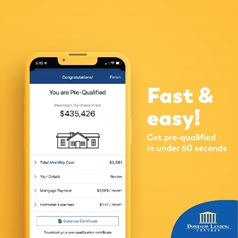Can Assumable Mortgages Get You a Better Interest Rate?

With today’s interest rate market being less than friendly, current and future homeowners are wondering if there is a way to find a lower interest rate like what we saw between 2020-2021.
For future home buyers, one option is they can consider finding a seller who has an ‘assumable’ mortgage that they can take-over.
But first, what is an assumable mortgage?
An assumable mortgage allows the purchaser of a home to also take over or assume the mortgage that is secured against that property.
For the buyer, they get the advantage of a lower interest rate. For the seller, this allows them to walk away from their mortgage without having to incur a penalty to break the terms of their mortgage contract.
However it’s not as easy as just finding someone who has an assumable mortgage. There’s pros and cons as well as conditions that apply.
Here’s how you go about assuming a mortgage...
The new owner will need to qualify just like any other mortgage. This means your credit, income and available down payment will all need to be verified and confirmed by that mortgage lender before you can take it over.
You might be thinking – Well that’s fine, I’ve got great credit and income I’ll have no problem being approved.
So what’s the catch?
To start, it can be difficult to find the combination of a home you want to buy and for that seller to have a mortgage that they wish to part with.
For this to line up, the seller usually has to not need financing on the home they are moving into meaning they are looking for a way to get out of their mortgage early.
Even if you do find an opportunity like this, there’s another layer to the equation.
One rule to assuming someone’s mortgage, is that you cannot borrow any more money than what is already on the current mortgage balance. That also means no second mortgages.
So if someone has a lot of equity, meaning a small mortgage relative to the price of the home they are selling, this means you will need to make up the difference with the down payment.
This is the number one reason why trying to assume someone’s mortgage often doesn’t work out. If you’re not coming into the purchase with a significant down payment, you may not qualify to assume the mortgage simply due to the fact you need a bigger mortgage than this one provides.
Another reason assuming a mortgage doesn’t always work out, is amortization.
For example, if the seller has been paying their mortgage for 10 years, this means they are likely at either a 20 or 15 year amortization.
When applying for a new mortgage, most buyers wish to start fresh with a new amortization of 25 or 30 years if available. This is so they can make the payment as manageable as possible going into the new home. When assuming a mortgage, you cannot adjust the amortization in any way. This can be a big deterrent for a buyer as they attempt to make their mortgage budget friendly.
Having said this, there are still opportunities where having an assumable mortgage can work out in your favor.
For example, if family members wish to sell their properties to one another, they can gift the equity of the home so no changes need to be made to the mortgage amount. This is the most common way I see assumptions work out but there are variety of unique situations that can still play out.
If you have any questions on assumable mortgages, click here to schedule a chat or send us an email and we’ll be happy to help you make an informed decision.

